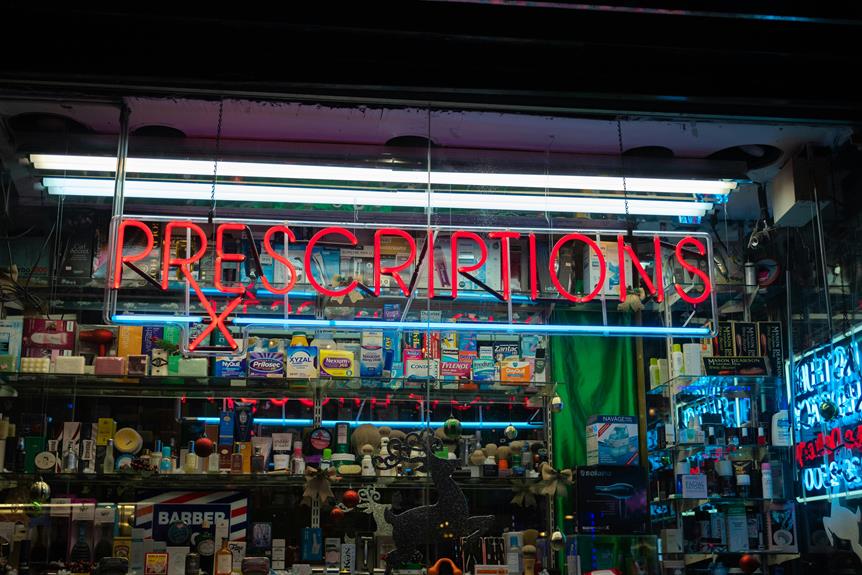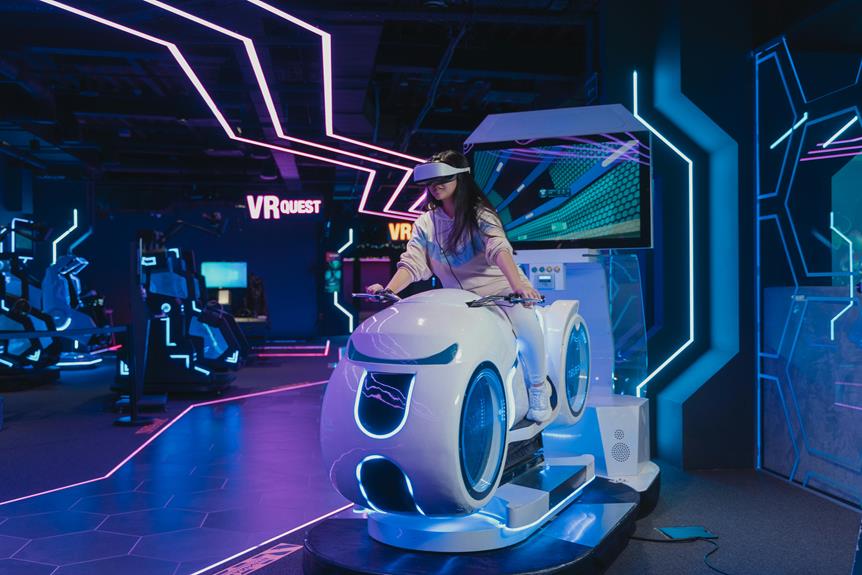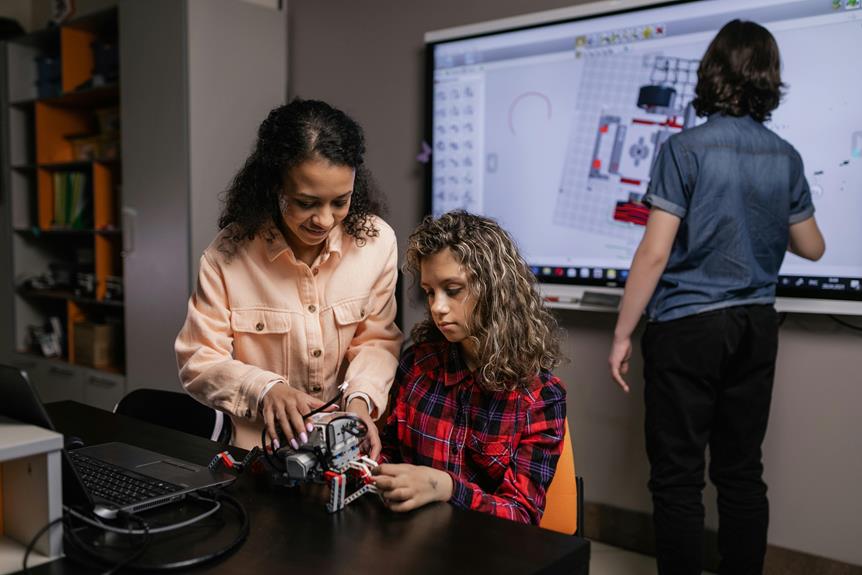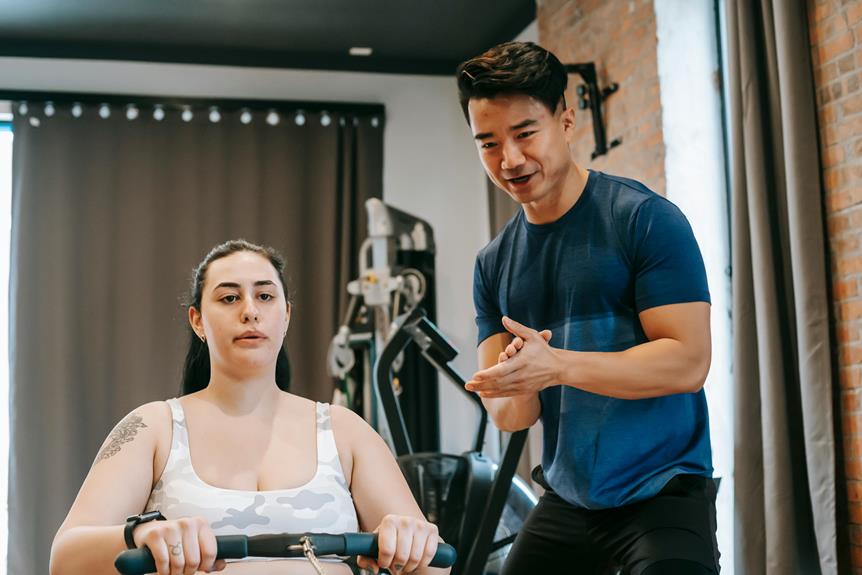The integration of gamification in the pharmaceutical industry has transformed engagement and education, elevating learning experiences for healthcare professionals and stakeholders. By shifting towards gamification, dynamic and immersive training methods have been unleashed, offering interactive solutions that engage and educate in the pharmaceutical sector. Gamification not only enhances patient adherence through mobile apps and personalized experiences but also improves healthcare outcomes by driving behavior modification and incentivizing treatment adherence. Moreover, gamification practices have been shown to boost engagement levels and knowledge retention among healthcare professionals, making learning more effective and enjoyable.
Innovative approaches, such as leveraging technology and behavioral incentives, continue to drive positive health outcomes in the pharmaceutical industry. Further insights await on how gamification is reshaping pharmaceutical engagement and education practices.
Key Takeaways
- Gamification enhances engagement and education in the pharmaceutical industry.
- Interactive platforms improve patient adherence to treatment regimens.
- Gamification strategies drive behavior modification for better healthcare outcomes.
- Healthcare professionals benefit from dynamic and immersive training using gamified solutions.
- Innovative technology solutions in pharma enhance health outcomes and processes.
The Rise of Gamification in Pharma
Undoubtedly, the integration of gamification in the pharmaceutical industry has witnessed a notable upsurge in recent years, revolutionizing traditional approaches to engagement and education within the sector.
By offering engaging education through interactive solutions, pharmaceutical companies have successfully enhanced learning experiences for healthcare professionals and stakeholders.
This shift towards gamification has paved the way for more dynamic and immersive ways of training and disseminating vital information in the industry.
Benefits for Patient Adherence
Gamification in the pharmaceutical industry holds significant benefits for enhancing patient adherence to treatment regimens. Mobile apps and interactive games offer engaging platforms for patients to track and manage their health routines. Virtual rewards and personalized experiences within these applications incentivize adherence, making the treatment process more interactive and enjoyable.
Impact on Healthcare Outcomes
Gamification in pharmaceuticals has shown promising results in improving healthcare outcomes through various strategies.
Patient engagement techniques, behavior change incentives, and enhanced treatment adherence have all contributed to better patient health and overall outcomes.
Patient Engagement Strategies
In the domain of pharmaceuticals, the implementation of effective patient engagement strategies has been recognized as a pivotal factor in influencing healthcare outcomes.
- Utilization of personalized interventions on digital platforms.
- Implementation of remote monitoring for enhanced patient care.
- Providing real-time feedback to patients for improved treatment adherence.
Behavior Change Incentives
Behavior change incentives play a significant role in shaping patient behaviors and ultimately influencing healthcare outcomes in the pharmaceutical industry. An effective incentive structure can drive behavior modification, encouraging patients to adhere to treatment plans and adopt healthier habits. By leveraging rewards and recognition, pharmaceutical companies can motivate patients to make positive changes, leading to improved health outcomes and overall well-being.
| Pros of Behavior Change Incentives | Cons of Behavior Change Incentives |
|---|---|
| Increases patient engagement | May lead to dependency on rewards |
| Improves treatment adherence | Could diminish intrinsic motivation |
| Encourages healthier habits | Potential for short-term focus |
Treatment Adherence Improvement
Effective strategies for enhancing treatment adherence have a direct impact on healthcare outcomes and patient well-being in the pharmaceutical industry.
- Remote monitoring guarantees real-time tracking of medication intake.
- Personalized interventions cater to individual patient needs.
- Behavioral nudges and virtual support systems offer encouragement and guidance for sticking to treatment plans.
Engaging Healthcare Professionals
Numerous strategies have been developed to enhance the engagement of healthcare professionals in the gamification of pharmaceutical practices. By incorporating elements of gamification into healthcare training programs, professionals can improve their skills while staying motivated.
This approach not only enhances professional development but also boosts knowledge retention and engagement levels. Gamified platforms offer a dynamic and interactive way to deliver educational content, making learning more enjoyable and effective.
Innovative Approaches in Pharma
Innovative approaches in the pharmaceutical industry encompass leveraging technology, developing patient engagement strategies, and implementing behavioral incentives to drive positive health outcomes.
The integration of tech solutions like telemedicine and wearable devices allows for remote monitoring and personalized care.
Tech in Pharma
As the pharmaceutical industry continues to evolve, the integration of cutting-edge technologies is becoming increasingly prevalent in revolutionizing various aspects of drug development and healthcare delivery.
- Digital Tools: Enhancing data collection and analysis in clinical trials.
- Virtual Reality: Improving training for healthcare professionals.
- Artificial Intelligence: Streamlining drug discovery processes.
Patient Engagement Strategies
How can pharmaceutical companies effectively engage patients in innovative ways to enhance their overall healthcare experience and treatment outcomes? By implementing remote monitoring technologies, patients can have their health parameters tracked from the comfort of their homes. Additionally, providing personalized feedback based on this data can empower patients to take an active role in managing their health. This approach fosters a more collaborative and proactive relationship between patients and healthcare providers.
| Engagement Strategy | Description |
|---|---|
| Remote Monitoring | Track health parameters from home. |
| Personalized Feedback | Provide tailored insights based on data. |
Behavioral Incentives
Pharmaceutical companies are exploring the implementation of behavioral incentives as a strategic approach to enhance patient engagement and adherence in healthcare practices.
Reward systems can offer tangible benefits for patients who meet health goals.
Motivation tactics like personalized progress tracking can boost patient involvement.
Incentivizing behavior through gamified platforms can lead to improved health outcomes and medication adherence.
Future Trends in Gamification
With the rapid advancements in technology and the increasing demand for engaging healthcare solutions, the future trends in gamification within the pharmaceutical industry are poised to revolutionize patient engagement and adherence.
AI integration and virtual reality experiences are expected to play pivotal roles in enhancing user interaction and treatment outcomes. These technologies will enable personalized and immersive gamified solutions, fostering better medication adherence and overall patient well-being.









































